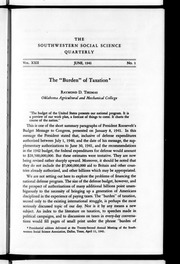I stumbled across this and I found it particularly interesting that 93 years ago the GOP was being called out for their use of this myth. It is one the GOP has continued to rely heavily on, especially in modern times. It is also interesting that this myth almost never benefited the real frontierspeople, but rather the rich industrialists from the East and Europe. I was hooked after the first paragraph,
There is no more persistent myth in American history than the myth that rugged individualism is or has been the way of American life. Many influences have entered into the creation of this myth, but the man who is chiefly responsible for its general acceptance is Frederick Jackson Turner, who, in 1893, when the western states were loud in their demands for national regulation of industry, said in his now famous Chicago address that the American frontier had promoted democracy—a democracy “‘strong in selfishness and individualism, intolerant of experience and education, and pressing individual liberty beyond its proper bounds.” Its tendency, he said, was anti-social. “It produced antipathy to control, and particularly to any direct control.” It permitted “lax business honor, inflated paper currency and wildcat banking.”*
Sure sounds like not much has changed other than the scale of the belief in this myth.
Just to be pedantic, it was 83 years ago, not 93.
I find the wording of that a little… strange? “The man chiefly responsible for [the myth’s] acceptance” sure sounds like he was warning of all of the dangers that came with it. I wouldn’t say he was promoting acceptance of such a culture.
Or am I misreading that? Are they saying Turner was wrong, that such an individualistic streak in American life (then and/or now) is fictional, not actually present?



